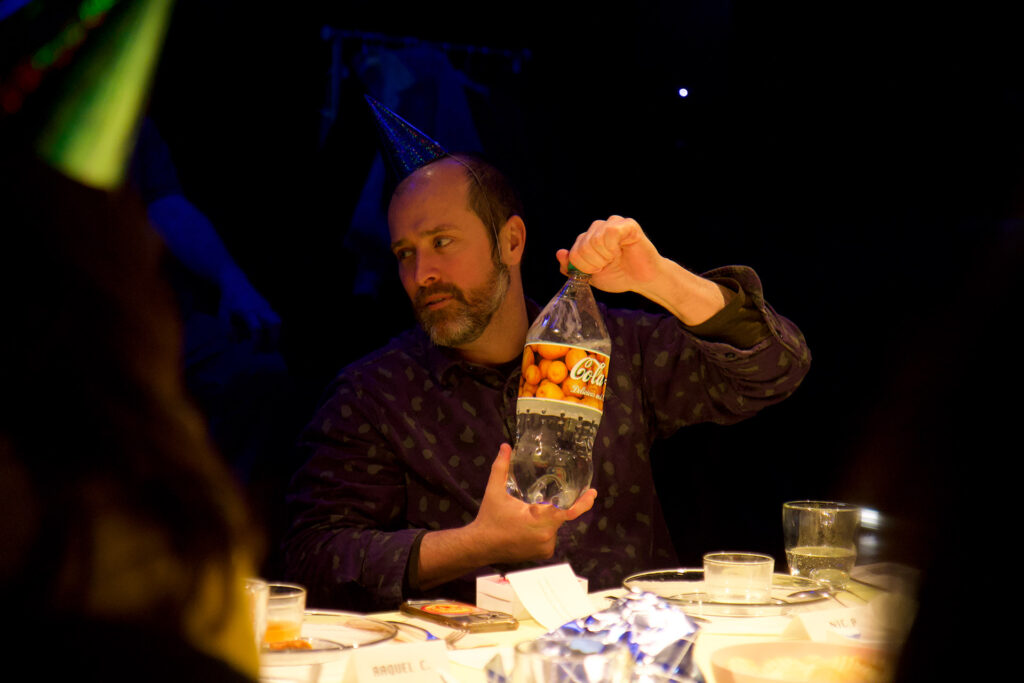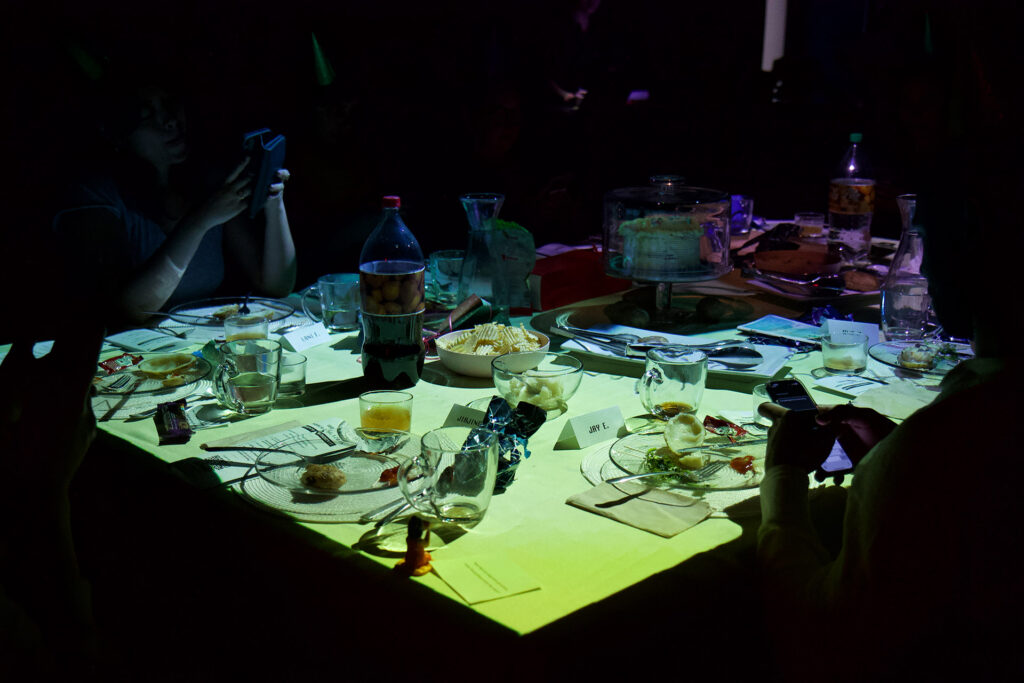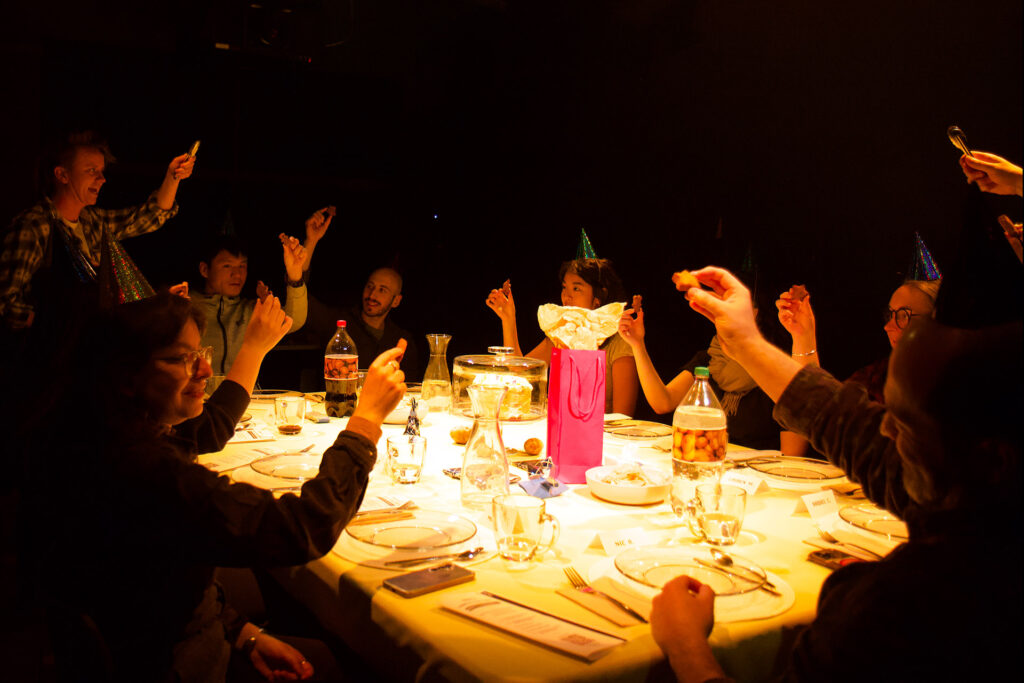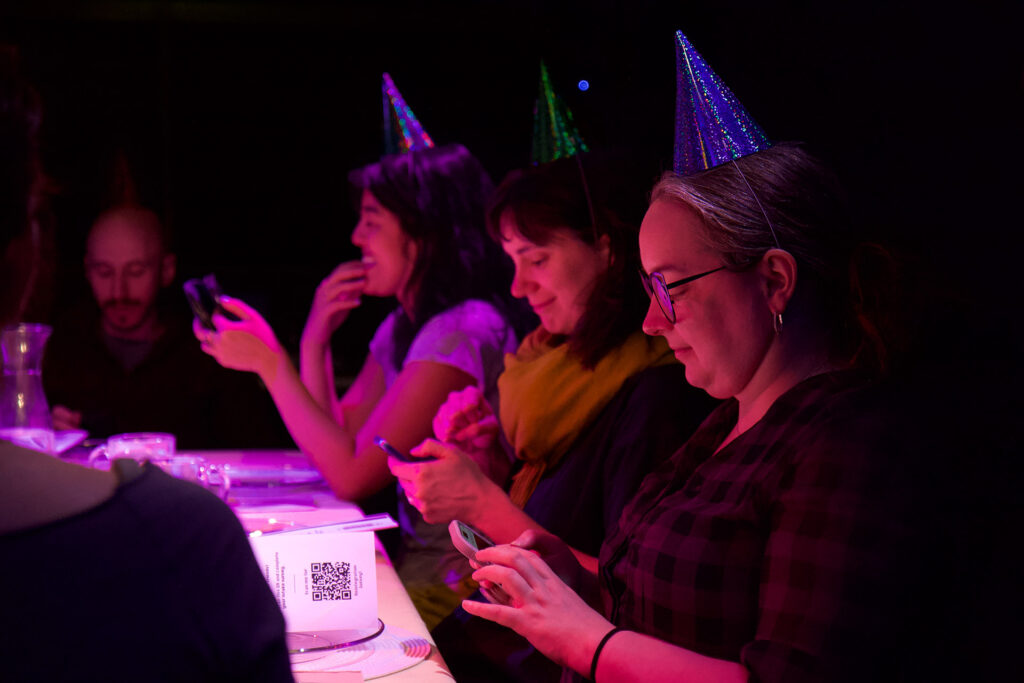BIRTHDAY
Christina Tang
Advisor: Tiri Kananuruk
Do you think your birthday is important?
Did you ever think your birthday was important?
When did that change?
… Why?
… Do you wish things were different?
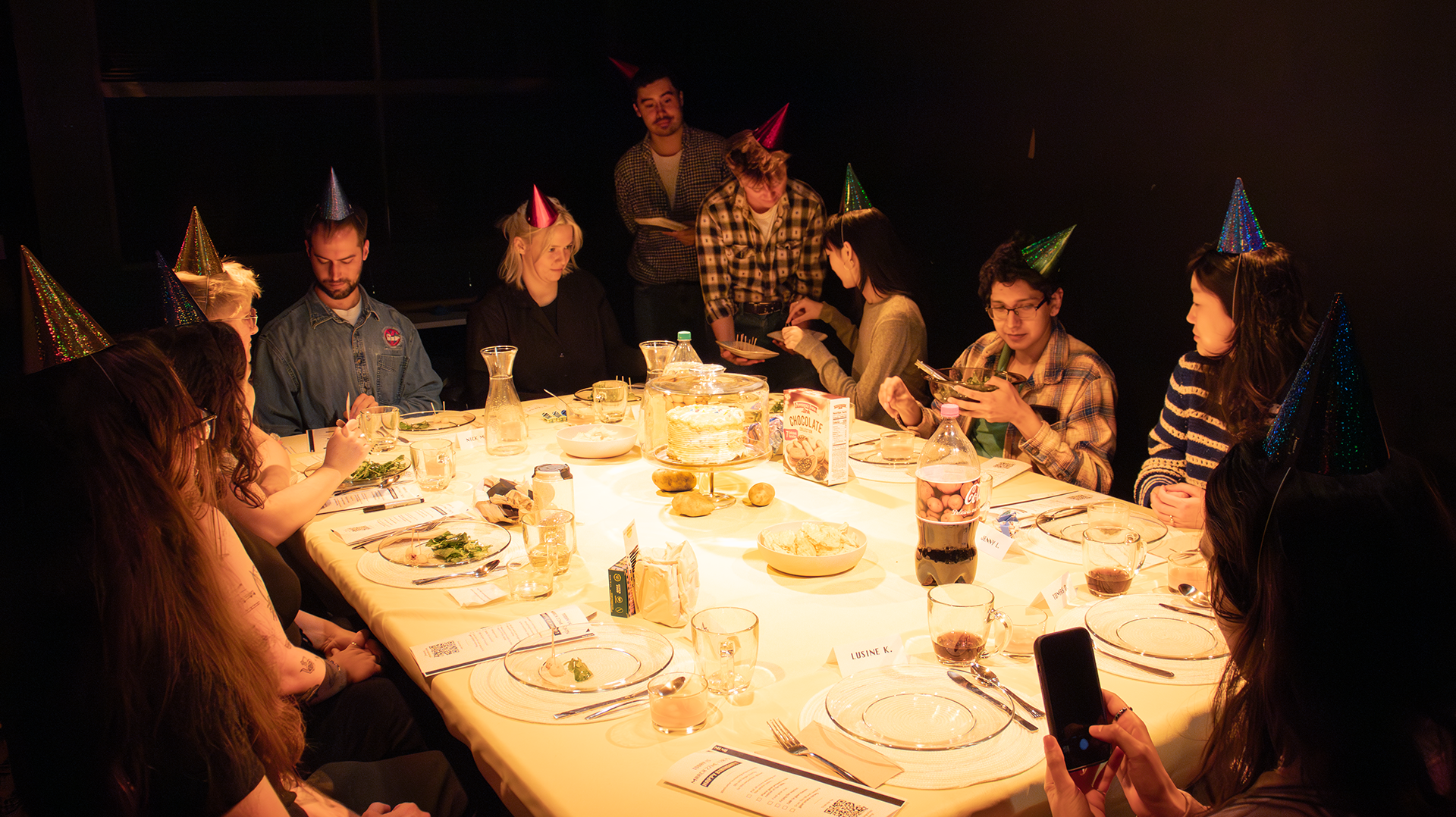
Project Description
BIRTHDAY is an interactive theater project that asks our audience to consider what ‘birthday’ actually means to them – in an honest way, not just shrugging it off as a childish fancy. In a time where people are turning away en masse from social and cultural institutions (often for good reason), birthdays are a secular tradition of meaning-making. We make an active choice to uphold birthday celebrations into adulthood, navigating a mix of traditions (cake, candles) and the personal touch (in my case, a birthday hike). I’m interested in using this topic to explore themes of cultural expectations, modern adaptations of traditions, individuality, and collective responsibility to our community and to our future. Created in collaboration with my theater company, SOUR MILK, and several of our designer and performer friends, BIRTHDAY is the first draft of a new theatrical work that attempts to identify and fulfill the prerequisites for answering these questions.
To do this, we are experimenting with a mix of traditional theatrical technique, elements of participatory games, and the universal ice-breaker: a shared meal. The project is set 10,000 years in the future, where the audience are the survivors of an ice age. They were placed into cryostasis back in the 2000s, and they are finally being awoken to be reintegrated into society. However, very little else has survived, but most notably: potatoes, the star and the punchline of the shared meal. In this strange world of extreme scarcity and resilience, two robot stewards’ existence revolves around teaching humans the ancient ritual of the BIRTHDAY PARTY.
In their absurd, misguided attempts to recreate the universal 'birthday’, they create a space for our guests to unearth their own, personal reasons for celebrating -- or not.
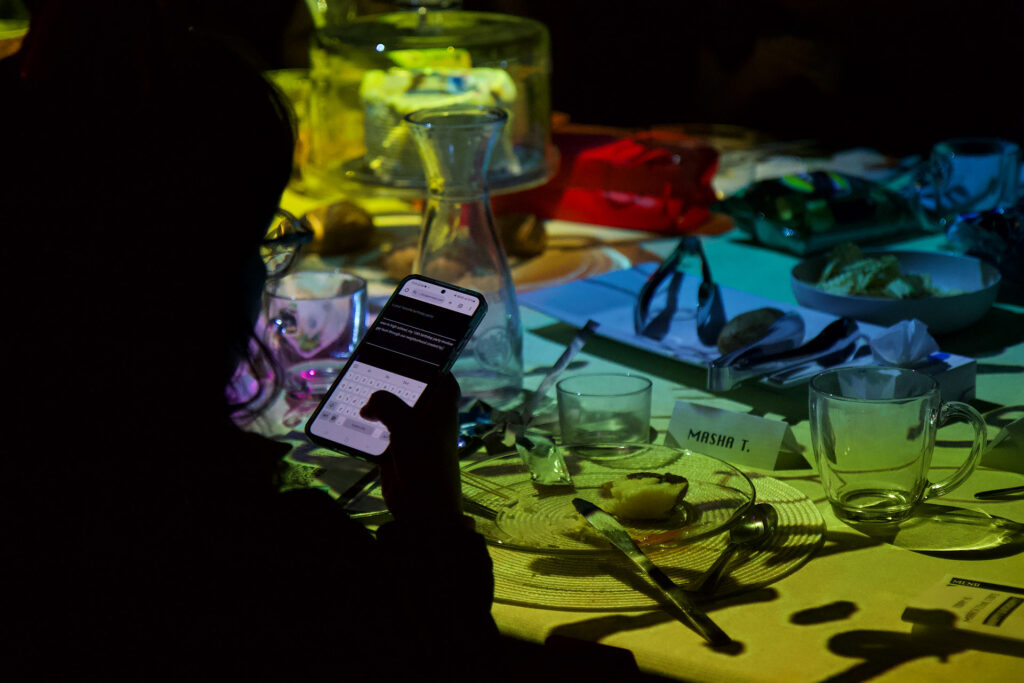
Technical Details
With my company SOUR MILK, I make interactive theatrical games leveraging hybrid media formats and a sticky DIY aesthetic. The goal is to create specific, immersive, and absurd worlds that distill complex societal systems, and then invite our audiences into them to reflect on how they fit into these spaces.
Formally, the SOUR MILK process is based in the belief that the future of performance is hybrid: both live and digital. Digital tools allow us to reach further, react faster, and create connections more quickly. They can also create the conditions of isolation and loneliness, siloing their user behind a screen. The primary reasons for our pursuit of technology within live performance is to amplify the human-to-human connection.
Developmental Workshop:
Dates: February 18-20, 2025
Collaborators: Christina Tang, Anna Jastrzembski, Carsen Joenk, Jesse Itskowitz, Alex Emond, Genevieve Simon
Notes: SOUR MILK shows are typically developed interaction-first: we know what we want our audiences to do, and we know how we want that to to make them feel, and then we develop a narrative around guiding our audiences through these steps. With BIRTHDAY, the goal was more open ended: feel very strongly what birthdays mean to you. In this low-tech development process, we devised several small games, interactions, and questions that evoked strong feelings from the collaborative group, and then attempted to break them down into replicable steps or questions. We came away with 3 small games: Thanks I Love It, Get Through the Door, and Hide and Seek.
Work-In-Progress Showing:
Rehearsal Dates: March 17-19, 2025
Performance Dates: March 20-22, 2025
Notes: We produced a minimum-viable-show – 6 times! Each showing accommodated 10 guests. A loose script was developed to stitch together the various ‘birthday games’ we had developed from the developmental workshop, and several more were created. After each performance we were able to hold a feedback session with the guests, and make small changes before the next day’s performance.
On the technical side, the larger-than-life dinner table was projection mapped with 2 projectors using Isadora, and we were able to use the full resources of our venue, The Garage, to focus a custom light plot and install a custom sound system for our unconventional setup.
I also developed a web app for our Reintegration Training ‘surveys’. This allowed us to introduce phones into the world early, and leave it open as an avenue for information and narrative delivery. Importantly, the web app creates an avenue in both directions: our guests can give us information, too. We were able to use personal stories and information that our audience shared with us – via submissions on their phones – to facilitate a conversation tailored to each cohort of guests about shared experiences and the importance (or non-importance) of birthdays.
Credits
Conceived by Christina Tang with SOUR MILK
SOUR MILK is Anna Jastrzembski, Carsen Joenk, and Christina Tang
Created in collaboration with Jesse Itskowitz, Genevieve Simon, and Alex Emond
Performed by Genevieve Simon and Alex Emond
Production Design by Christina Tang
Compositions by Sid Diamond
Sound Design by Alexandra Palocz
Potato Design by Jesse Itskowitz
Producing support by Dani Turner & Connor Scully
Photos by Andriana Mereuta & Mari Eimas-Dietrich
Special Thanks to...
Tiri Kananuruk, Josh Zhong, and our ITP Thesis Class
The 370Jay Media Commons:
Ean Herrera, Erik Bell, Samantha Skinner, Jhanele Green, Andriana Mereuta
The Garage Crew: AJ Jaimes, Arya Samrit, Alan Chao, Garrett Treanor, Zoe Tevyaw, Dazai Chen
Marlon Evans & The ER
The Kaufman Music Center
Kari Love, Dan O’Sullivan, Daniel Nelson, Aya Ogawa, Tom Igoe, Una Zhang, Jasmine Nackash
Matthew Lau and his air fryer
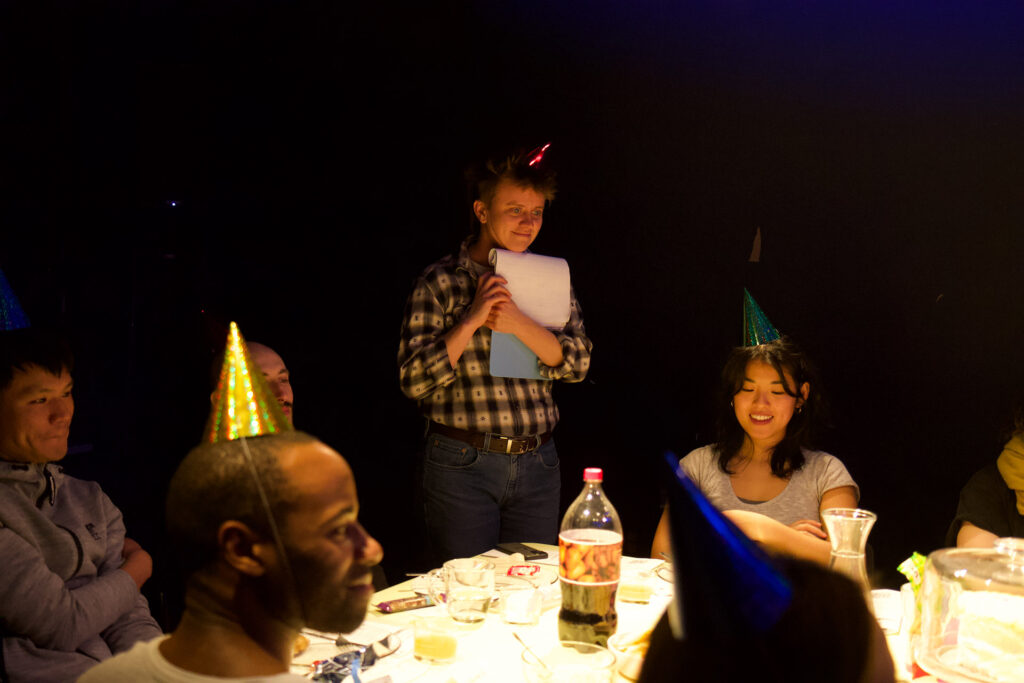
Research/Context
The underlying question behind this project is broader than just birthdays:
How do we decide what’s worth remembering? And how do we do the remembering?
I was interested in two methods: the construction of an archive, and the creation & perpetuation of rituals. The first is mediated and the second is embodied.
What I mean by archives is documents and photos: media forms with the pretense of being objective and historical. The ‘meaning’ is held in / ascribed to the objects themselves. I’ve always been more interested in what events people choose to capture than the content of the photos/documents themselves, and my hunch is that most people want to document ‘special’ moments.
This is a specific hang-up of mine because my family (ok, my dad) is obsessed with its own history. It’s a little bit special, in the way that many people have a significant ancestor who was important in a big way like, 100 years ago, but to this day we celebrate funerals with hours-long powerpoint reviews of a person’s entire life. Since I was a kid, it’s my dad who makes these powerpoints; it’s my job to set them up at the funeral home.
The archive of our family history has been omnipresent throughout my life. My dad, as self-appointed family historian and practiced photographer, has digitized tons and tons of photos and writings and interviews and books of and by great-uncles and aunts. He mourns his sheltered childhood from before the Cultural Revolution; every passing year carries him further from happiness. In rebellion, I have become a very different type of person, one who hates photos and eschews melancholy. Having overcome a crippling anxiety as a younger person, every year now feels brighter and lighter. However, I am always second guessing my relationship to the familial past. To what extent am I responsible for it? How much of it can I possibly hold? Why is it so important to keep so much?
On a societal scale right now, I think we have lost interest / good faith in traditional institutions of meaning-making: filial piety, religion, careers, politics. I personally can’t find it in me to be sad about a lot of these institutions crumbling, as they never had room for me to begin with (for instance: my family’s book of names is passed on to men only). However, it means we all need to be collectively responsible for our own meaning-making now.
How do we choose what to carry?
What gets left behind?
How do we reconcile that the act of choosing creates both grief and joy?
My answer to these questions is: the perpetuation of rituals.
What I mean by rituals is traditions of celebration: holidays, superstitions, etc., and the specific requirements and steps necessary to complete them.
I landed on birthdays as a medium and a topic because they are both embodied rituals in and of themselves (cake, candles, wishes), and also the sites of memory / archival creation (how many of your childhood photographs are from birthday parties?). Specifically for this project, I wanted to explore birthdays as markers of time passing, the ways we generate significance for ourselves in the present as well as our pasts, and the difference between honoring a year gone by and anticipating the year ahead.
Lastly, it was also important that the topic be something that could be FUN and possibly CAMP and a PARTY.
